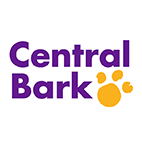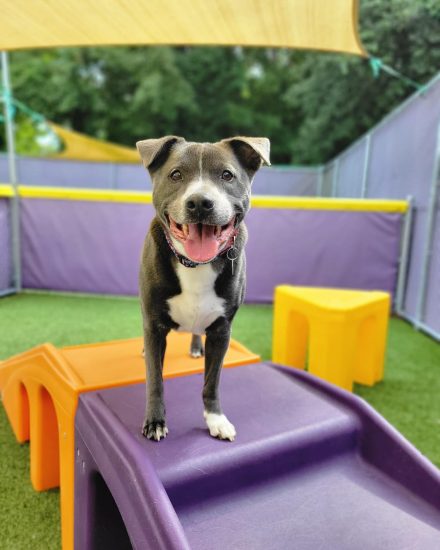Many large celebrations and firework displays have been taken off the schedule this year in response to the pandemic the world is currently facing. If your dog is afraid of fireworks, you probably sighed a breath of relief! However, about a week or two ago you probably started to notice the sound of fireworks in the distance, or right down the street. In previous years, one week before, the week of, and the week after 4th of July was usually the most treacherous time of the year for dogs with firework fears.
This year is different though, with many people home from work and school, missing celebrations, social gatherings, and the like, firework season has come early, and my guess is that the whistles, pops, bangs, and booms won’t be gone until summer is over.
Firework stores across the country have seen a 200-300% increase in sales so far this year. So, what can you do to support your dog through this summer’s inevitable increase in noise? For any dog that suffers from anxiety or fear, practicing a routine that allows your dog to self-soothe and relax will be essential to their emotional welfare. There are several ways you can do this.
Daytime decompression walks
For a dog that suffers from noise phobias, exercise and enrichment must happen during the daytime. Outside excursions at night, even for essential activities like potty breaks, increase the risk of a noise-sensitive dog experiencing fear, panic, and a flight response, which may result in escaping a yard or harness. Decompression Walks are leisurely walks with your dog where the goal is to encourage your dog to sniff, explore, and relieve tension. They’re low-key walks in big open fields, on hiking trails, or in other spaces where there are few other dogs and people.
These spaces allow for appropriate social distancing, and don’t require that your dog spends time socializing or playing with other dogs. It’s seriously time just for sniffing. The cool thing about this is that a recent study has shown each time a dog sniffs, their heart rate is reduced. That’s right, as your dog investigates the environment around them with their nose, their heart slows down. This can be incredibly therapeutic, and these types of exploratory walks can help a dog recover from stressful events (like fireworks the night before) so they can be more successful for stressful events in the future (like more fireworks). Now, this isn’t a cure-all, but it certainly can be a great benefit to your dog’s emotional welfare.
It’s important to keep in mind that when a dog feels stress, the hormone cortisol is released in their body, which can have a negative effect on their digestive system, their social behavior, their ability to get restful sleep, their immune system, and even their ability to learn and retain information. Cortisol can take up to 48 hours to fully diminish in the body, and its release can be triggered in anticipation of a stressful event.
This means your dog may carry the effects of their firework-related stress for multiple days, and their stress response could begin at the first signs of fireworks, like nightfall. In fact, if you have a pup like mine, they might not even be willing to go outside once the sun starts to set because they have associated darkness outside with scary sounds. Their body anticipates the scary sounds and releases cortisol before they even begin!
Self-soothing enrichment
Another great way to set your dog up to relieve stress on a daily basis and to combat that cortisol release they may be experiencing almost every evening is to give them some type of long-term chew or food-filled, frozen enrichment toy. The reason for this is that consuming food causes a serotonin release in their digestive tract. This hormone is almost the opposite of cortisol, causing relaxation instead of stress, so it works well to soothe a dog who is otherwise feeling anxious. This enrichment item could be a raw or smoked beef bone, a bully stick, a frozen bowl of canned dog food, or a filled, frozen peanut butter Kong.
You can get very creative with the mix of food or treats you use, just keep in mind the goal is for your dog to be licking or chewing on the item for upwards of 30 minutes. Why? There is evidence that mastication (chewing) and licking can reduce cortisol levels. This is important because cortisol can remain in the body for several hours and if stress is experienced for a prolonged period of time, cortisol can remain in the body for several days before reducing to normal levels. Cortisol can lead to bigger, more intense stress responses. Stress compounding stress is not healthy for anyone but providing healthy access to coping mechanisms like licking and chewing can greatly benefit a dog experiencing stress.
Talk to your Veterinarian
If you have noticed your dog may be experiencing stress, seek the support of your dog’s veterinarian. They will be an invaluable guide and resource for your dog’s success. Some dogs benefit greatly from pharmaceutical support during fireworks season and they can help to guide that conversation.
Safety Measures
When taking your dog outside for bathroom trips, exercise, or enrichment, make sure they are always wearing identification. A secure collar and name tag with your phone number on it is the best way to get your dog back home should they get out of the yard or slip out of their harness. If your dog is a flight risk, keep them on a leash, even if you have a fully fenced yard. Dogs have dug under and climbed over fences all too often when experiencing extreme fear, and even a moment unsupervised can be enough time to bolt.
And more
For more on 4th of July preparedness, check out our blog post Preparing your dog for July 4th!
See you next time, at Central Bark!
-Carla

Carla is a Behavior & Operation Advisor for Central Bark and co-owns a dog training and behavior consulting business, Good Karma Canine. Carla has three dogs Karma, a seven-year-old American Staffordshire Terrier Mix; Gypsy, a five-year-old Bull Terrier/Lab Mix; and Newt, a two-year-old Chihuahua.






